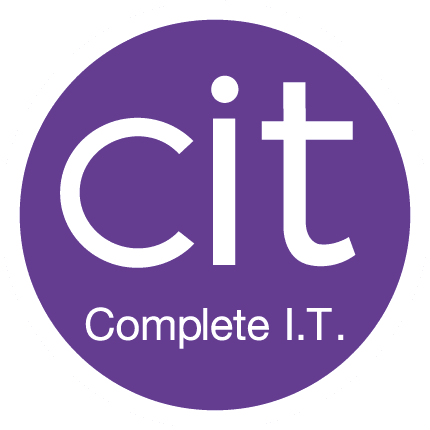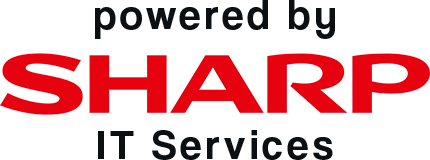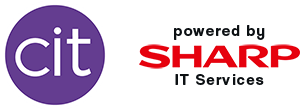Companies Industry
What companies are in the IT industry?
Worldwide distribution of IT products is reflective of where the technology is most used. Companies such as Apple and Microsoft give North America a 30% global distribution share, followed by Asia with organisations such as Samsung, Sony and Foxconn at 29%. European companies are at 24%, Latin American at 9%, and African at 7%.
For an in-depth analysis of the global IT market, digital agency Iron Paper has consolidated its research.
Apple
With headquarters in California, Apple designs, develops and markets iconic computer software, online services and electronics with a design focus, including: the iPod, iPhone, iMac, iPad, and Apple Watch. The company was founded by Steve Jobs, Steve Wozniak and Ronald Wayne in 1976 in the garage of Steve Jobs’ house. Apple restructured as Apple Computer Inc. in January 1977, and renamed as Apple Inc. in 2007. Apple devices are often used by creative companies, such as graphic designers, marketing agencies and printers.
The impact Apple has had within the IT and technology industry is unparalleled. In 1976 Apple released what was essentially the first personal computer as we know them today, pre-assembled. The original iMac was a major reason for the widespread abandonment of floppy disks, which used USB ports instead. Its internet-focused design and sleek swooping curves inspired similar products from other brands. When Apple introduced iTunes and the iPod, it made digital music completely accessible and mainstream, whilst the iPhone revolutionised smartphone technology. Before the iPhone, smartphones came in the form of Blackberries or various creations from Nokia, after the popularity of iPhone, all smartphones followed suit.
Apple is the largest information technology company in the world by revenue and the largest technology company by total assets, as well as the second largest mobile phone manufacturer by volume.
Microsoft
Microsoft is a multinational computer technology organisation, founded in 1975 by Bill Gates and Paul Allen. With around 128,076 employees worldwide, its best-selling products are the Microsoft Windows operating system and Microsoft Office suite of software. Over 200million computers worldwide use Windows, which was first released in 1985. Additionally, Microsoft is behind the hugely popular Xbox gaming console and Bing, the second most popular search engine behind Google.
Complete I.T. are Microsoft Partners
Samsung
Founded in South Korea, The Samsung Group consists of numerous businesses, united under the Samsung Brand. The original business focused on trade export, selling dried Korean fish and fruit to China. It wasn’t until the late 1960s that Samsung Electrics was born, with the first TVs, washing machines, refrigerators and microwaves going on sale in the 1970s.
Samsung is regarded as one of the best smartphone and TV manufacturers in the world, with the first Android phone being launched in 2010, which continues to rival the Apple iPhone. Samsung has also maintained the no.1 position in the global TV market for 10 consecutive years.
Alphabet Inc. (Google)
Alphabet Inc. was formed in 2015 as part of a large scale corporate restructuring of Google, which is now a subsidiary of Alphabet as its parent company.
Google Timeline:
• 1996 – Larry Page and Sergey Brin produce ‘Anatomy of a Large-Scale Hypertext Web Search Engine’, which was the basis for the Google search engine
– The first version of Google released on Stanford Web
• 1997 – Google.com is registered as a domain name
• 1998 – Google becomes an official corporation
• 2000 – Worldwide use of Google reaches 18 million
– Foreign language versions of Google are released in Chinese, Danish, Dutch, Finnish, French, German, Italian, Japanese, Korean, Norwegian, Portugese, Spanish, and Swedish.
– Google AdWords, a keyword related contextual advertising platform is launched
• 2003 – Google AdSense went into service for advertisers
• 2005 – Google launches Google Earth, Google Maps, and iGoogle
• 2006 – The verb ‘Google’ is added to the Oxford English Dictionary
– Google purchases YouTube
• 2007 – Gmail is launched to the public
– Distribution of the Android operating system begins
• 2008 – Google Chrome is launched
• 2010 – Google’s first Android phone, the Nexus One is released
• 2015 – Google becomes a subsidiary to Alphabet Inc.
Click here to see how Google has evolved: https://www.youtube.com/watch?v=olFEpeMwgHk
Google’s mission statement is: “to organise the world’s information and make it universally accessible and useful.”
Many smaller subsidiaries have now joined as part of Alphabet Inc., including: Calico, Capital G, DeepMind, Google Fibre, GV, Jigsaw, Nest Labs, Sidewalk Labs, Verily, Waymon, and X, each undertaking significant activities with several industries, such as: technology, investment, life science, and research.
For more information on Google, please refer to ‘Alphabet Inc. in what companies are in the IT industry’ in section 2.4
Foxconn
Hon Hai Precision Industry Co, Ltd., trading as Foxconn, is primarily a contract manufacturer, with contracted companies including: BlackBerry, Apple, Amazon, Nintendo, Nokia and Xbox. Foxconn is the World’s largest contract electronics manufacturer.
In 2016, Foxconn completed a $3.8bn takeover of Sharp, marking the largest acquisition by a foreign company in Japans industry, and the end of independence for the 100 year old company, which began manufacturing mechanical pencils.
Panasonic
Headquartered in Kadoma, Japan, Panasonic was founded in 1918 by Konosuke Matsushita, originally as a vendor of duplex lamp sockets. The company today is split into three broad fields: consumer, solutions and components, and devices, which each offer a wide variety of products and services. Panasonic is widely recognised as a manufacturer and retailer of the television, and is the fourth largest TV manufacturer worldwide. Reports surfaced in 2016 that the company is looking to make acquisitions in the field of artificial intelligence.
Amazon
Based in Seattle, Washington, American e-commerce and cloud computing giant Amazon was founded in July of 1994 by Jeff Bezos. Amazon.com began as an online bookstore, later becoming a retailer of DVD’s, CD’s, videogames, and audiobooks, gaining enough popularity to produce its own electronics for consumers, most notably the Fire TV stick, Fire Tablet, Echo, and Kindle. The company offers an ‘A-Z Guarantee’ with any purchase made through its website, which guarantees product quality and timely delivery. Amazon believes so much in its guarantee that it has incorporated A-Z into its logo. The company’s global reputation has made it the largest internet-based retailer today in terms of total sales, and the largest international Infrastructure as a Service (IaaS) and Platform as a Service (PaaS) cloud infrastructure service provider.
HP
Founded as Hewlett-Packard by William Hewlett and Dave Packard in California in 1939, HP produced the World’s first programmable pocket calculator in 1973. HP manufactured its first PC in 1980, followed by the first ‘laptop’ in 1982. In 1994, HP moved into the print industry, with the first all-in-one printer, able to also copy and fax.
Today, Hewlett-Packard has split into two distinct companies. The Hewlett-Packard Enterprise, which focuses on office technology, and HP Inc. which deals in the software market. HP Inc. is now a global leader in technology. Positioned 80 on Forbes Global 2000 list, HP develops cutting-edge products like the Designjet and PageWide printers, HP laptops, and cameras.
Sony
Sony has a rich history, dating back to WWII when in 1946 Masaru Ibuka started a shop in a department store selling electronic devices. In the following year, Masaru was joined by Akio Morita and founded Tokyo Tsushin Kogyo, which left many legacies, one of which was the invention of Japan’s first tape recorder.
Officially changing its name to the Sony Corporation in 1958, Japanese transnational organisation Sony is headquartered in the Minato district of Tokyo and is separated into four distinct business categories: electronics, motion pictures, financial services, and music. The diversified business offers services and products ranging from consumer and professional electronics, to entertainment home cinema systems, financial services, and its gaming technology, such as the globally popular PlayStation.
Lenovo
Lenovo Group Ltd, founded by Liu Chuanzhi as Legend in 1984, is a Chinese multinational technology company that designs, develops, manufactures and markets computers, tablets, smartphones and servers.
Lenovo is the world’s largest personal computer vendor based on total unit sales, with products such as the ThinkPad notebook computers, IdeaPad netbook laptops, IdeaCentre desktops, Yoga netbook laptops and ThinkCentre desktops.
IBM
‘International Business Machines’ or IBM is a global IT consulting and computer technology corporation headquartered in New York. The company dates back to the 19th century, where several key figures patented early products such as the computing scale and dial recorder. Today IBM continues to focus on the manufacturing and marketing of hardware and software.
With over 380,000 employees worldwide (as of 2016), IBM has staff in 170 countries. Its employees have earned 5 Nobel Prizes, 4 Turing Awards, 5 National Medals of Science and 5 National Medals of Technology.
Notable inventions by IBM include the ATM, floppy disk, hard disk drive, magnetic stripe card, SQL programming language, the UPC barcode and DRAM.
Dell
Dell Inc. is a global company founded by Michael Dell, and has been headquartered in Texas since 1984. The technology company develops and sells computers and related products and services. It is now a subsidiary of Dell Technologies, which formed in 2016 through a merger of Dell Inc. and data storage provider EMC, labelled as the largest tech acquisition in history.
Toshiba
A Japanese conglomerate headquartered in Tokyo, Japan, the Toshiba Corporation was founded in 1939 as Tokyo Shibaura Denki K. K. The result of a merger of two companies that began their lives in the 1800s, Shibaura Seisaku-Sho and Tokyo Denki, the company officially reorganised as the Toshiba Corporation in 1978. Toshiba is split into four distinct business groupings today: The Electronic Devices Group, Home Appliances Group, Digital Products Group, and Social Infrastructure Group.
Toshiba offers a diverse range of services and products including: IT, telecommunication systems and equipment, social and industrial infrastructure equipment, electronic components and their materials, such as printers and photocopying products.
VMware
VMware Inc. was founded in California by Diane Greene, Mendel Rosenblum and Edouard Bugnion in 1998. The company’s first product, the VMware Workstation was launched in the following year. It allowed users to run several instances of x86 and x86-64 software (the programs that essentially join the software and hardware components of a computer).
Since 1999 the software developer has created many products that aim to provide fully integrated virtualised spaces, such as cloud management, desktop, server and virtual desktop software.
Today VMware is a subsidiary of Dell Technologies, who acquired VMware’s parent company EMC Corporation in 2004.
Cisco
Headquartered in California, Cisco Systems Inc. is an American technology conglomerate that develops and manufactures high-quality technology services and products. As the largest networking company worldwide, Cisco has developed networking hardware, such as routers and hubs, since its founding in 1984 by Leonard Bosack and Sandy Lerner.
The two founders all but pioneered the local area network concept (LAN), which connects geographically disparate computers via a router system.
Citrix
Citrix Systems Inc. is an American global software company that began in 1989, initially producing remote access software for Microsoft operating systems. The organisation gained prominence in the 1990s as a pioneer in thin client technology; a specific type of computer that remotely connects to a server.
Citrix now provides a wide range of products, including: applications, server and desktop virtualisation, software as a service (SaaS), networking and cloud computing technologies.



